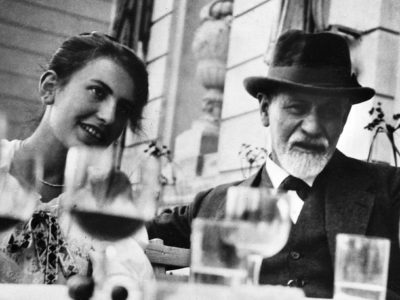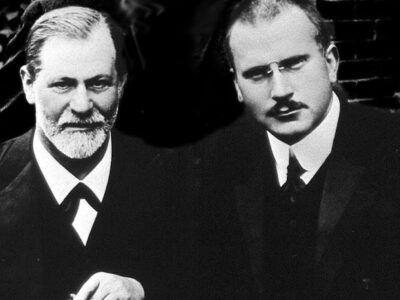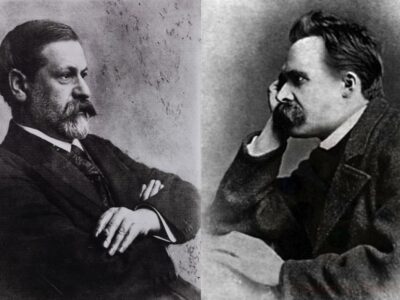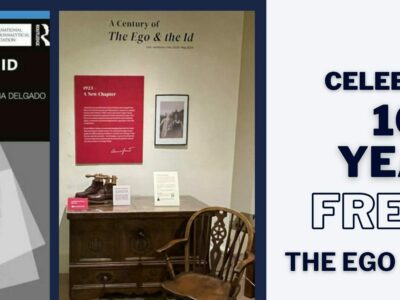
- This event has passed.

This course will take place on 7 and 8 October 2021 for 3 hours each day. The time listed includes a tea break. Booking admits all attendees to the livestream and access to the recording for 1 month. Registrants will receive the reading material 1 day before the course.
In 1909, Freud stated that in order to practise as a psychoanalyst, the only qualification necessary was to have learned to interpret one’s own dreams. This statement reflects the central role he accorded to dream interpretation in psychoanalysis, and reminds us that he had conducted his own self-analysis, by analysing his own dreams. Freud changed his mind later on the training of future analysts, but nevertheless, his masterpiece ‘The Interpretation of Dreams’ (1900) remains one of the most important texts of psychoanalysis, and this course will examine in detail the practical method for interpreting dreams set out in that work, and the theory of dreams put forward to support it. We will compare Freud’s method with other approaches to dream interpretation, especially that of Jung, discuss the role of dreams in psychotherapy, and review the latest findings of the neuroscience of sleep, to determine how well Freud’s thinking on dreams has fared in the 120 years since the publication of his most celebrated book.
Session 1: In Freud’s time – as in our own – there were two opposed views of dreams: that dreams are a purely physiological phenomenon – due to the random firing of neurones during sleep – and that dreams have a meaning. Freud’s view of the nature and function of dreams had its roots in the theories he learned while training as a neurologist – and we will examine the neurological model of the ‘mental apparatus’ he developed in his ‘Project for a Scientific Psychology’ (1895). This model underpins his central idea that every dream represents the fulfilment of a wish – but this hypothesis is only one aspect of his approach to dreams. The other – equally important – aspect is the practical method for interpreting dreams which came directly from his clinical work with his patients. We will therefore explore how Freud arrived at the practice of ‘Free Association’, which he later called the ‘Fundamental Rule of Psychoanalysis’, and insisted was the key to dream interpretation.
Session 2: Bringing these two aspects together, Freud states in ‘The Interpretation of Dreams’ that every dream represents the fulfilment of a wish – but that in most dreams dreamt by adults, the wish in question is deeply repressed, so the wish-fulfilment is heavily disguised in the dream as we experience and remember it. The core of Freud’s theory, therefore, lies the distinction between the dream’s ‘Manifest Content’ (the dream as we remember it) and its ‘Latent content’ (the hidden meaning, revealed by the process of interpretation), and in his account of the DREAM WORK – the processes that disguise the true meaning of the dream, producing the dream we remember. In this session, we will study in detail the processes that constitute the ‘DREAM WORK’, illustrating these with examples from ‘The Interpretation of Dreams’.
Session 3: In this session we will study the subtle and complex examples of dream interpretation provided by Freud in his masterpiece – beginning with a detailed examination of the dream of ‘Irma’s Injection’ – perhaps the most famous dream in psychoanalysis (one of Freud’s own, of course), and the most extended ‘worked example’ of dream interpretation given in the book. Freud analyses many dreams of his own in ‘The Interpretation of Dreams’, both to illustrate the application of his method of dream interpretation and to provide examples of the dream work, and since these dream analyses were part of his self-analysis, they also give the book a definite auto-biographical dimension. Fortunately, we have another source for the same material – his letters written at the time he was writing the book to his intimate confidante Wilhelm Fliess – and since this source was definitely not intended for publication, we can use the letters to cross-check what he tells us in the dream book. Putting these sources together we will attempt to reconstruct Freud’s self-analysis – the process by which he reconstructed the most important experiences of his earliest childhood by means of his dreams – focussing both on its successes and on its inevitable limitations.
Session 4: After WW1, Freud revised his theory of dreams to take account of Traumatic Dreams – such as those of soldiers psychologically traumatised in battle – and we will see how his thinking on dreams changed as a result of this challenge. We will also examine Jung’s critique of Freud’s theory and method of interpretation, comparing Freud’s approach to dreams with that of Jung, and highlighting the differences between them both in theory and in the practice. Finally, we will review the role of dream interpretation in psychotherapy today, and examine the current thinking on dreams based on the latest findings of neuroscience, asking how well the ideas contained in Freud’s masterpiece have fared, in the 120 years since its publication.
(This is the second of five six-hour courses offering a complete introduction to Freud. The courses will be accessible to beginners – but are also designed for those already familiar with Freud’s work who wish to acquaint themselves with the results of the latest research and scholarship, and up-date themselves on the recent debates addressing the intellectual issues and controversies surrounding it.)






